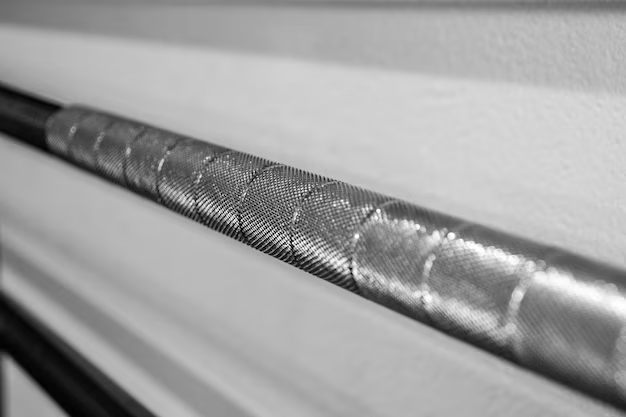What You Need to Know About Refrigerator Filters: What They Really Remove
Keeping Your Water and Ice Pure: The Hidden Power of Your Refrigerator Filter
Imagine a scenario where every glass of water you pour from your refrigerator is not just cold and refreshing but also tastes clean and is safe for consumption. It's easy to appreciate the convenience that refrigerator filters provide, but have you ever stopped to ponder what exactly these filters remove from your water? Let's dive into the intriguing workings of refrigerator filters and uncover their pivotal role in delivering safe, great-tasting water and ice.
What Do Refrigerator Filters Really Remove?
Refrigerator filters are designed to protect your drinking water from various impurities. They play a critical role in enhancing the taste, scent, and safety of the water. Here's a closer look:
Chlorine and Chloramine: Most municipal water supplies use chlorine and chloramine for disinfection. These substances, while effective at purifying water, can leave an unpleasant taste and odor. Refrigerator filters typically utilize activated carbon to remove these chemicals, significantly improving the flavor.
Particulate Matter: This includes sand, dirt, rust, and silt. These particles can originate from the water supply or plumbing systems. A refrigerator filter captures such particulates, ensuring your water is clean and clear.
Heavy Metals: This category includes lead, mercury, and cadmium, which can pose health risks. Activated carbon filters can remove many such metals, providing an additional layer of safety for your drinking water.
Organic Compounds: Volatile Organic Compounds (VOCs) such as pesticides and industrial chemicals can seep into water supplies. These are reduced to safe levels by the activated carbon filter in your refrigerator.
Microorganisms: Some advanced filters are designed to reduce bacteria, viruses, and cysts. While not all filters have this capability, many high-end models do.
How Refrigerator Filters Work
At the heart of most refrigerator filters lies activated carbon, a highly porous material that effectively traps impurities as water passes through. The porous structure of activated carbon gives it a vast surface area, making it perfectly suited to adsorb unwanted substances. This interplay of chemistry and engineering ensures that contaminants adhere to the carbon, allowing only purified water to flow through.
Stages of Filtration:
- Sediment Filtration: Initial filtration occurs here, capturing larger particles like dirt and rust.
- Activated Carbon Block: This stage removes chlorine, odors, and improves taste.
- Advanced Filtration: Some filters also include additional materials or technologies to remove microorganisms and specific heavy metals.
Installing and Replacing Your Refrigerator Filter: A Simple Guide
Maintaining your refrigerator filter is crucial for optimal performance. Here's how you can take charge of the installation and replacement process:
Installing a New Filter
- Locate the Filter Compartment: Typically found in the grille at the base of the refrigerator or inside the fridge upper right corner.
- Remove the Old Filter: Twist or pull out the spent filter depending on the model.
- Insert the New Filter: Follow the manufacturer's instructions for correct alignment and installation.
- Flush the Filter: Run water through the dispenser to clear any loose carbon particles and activate the filter.
How Often Should You Replace the Filter?
Every refrigerator is different, but a common recommendation is every six months. However, replacement frequency may vary depending on usage and local water quality. Keep an eye out for indicators like decreased water flow or odd odors.
Common Misconceptions About Refrigerator Filters
Misconception 1: All Filters are Created Equal
Not true! Different filters offer varying levels of filtration power and are suited to different contaminants.Misconception 2: Refrigerator Filters Can Replace Water Treatment Systems
While they enhance water quality, they aren't replacements for comprehensive water treatment solutions, especially in areas with significant water quality issues.
Troubleshooting Common Filter Issues
Even with regular maintenance, you may encounter issues with your refrigerator filter. Here’s how to address some frequent problems:
- Reduced Water Flow: This often indicates a blocked filter, requiring immediate replacement.
- Unpleasant Taste or Smell: A possible sign that the filter's adsorption capacity is exhausted.
- Leaking at the Filter Site: Ensure the filter is securely installed. If problems persist, the filter or housing may be damaged.
The Future of Refrigerator Filtration Technology
As our understanding and demand for clean water grow, refrigerator filter technology continues to evolve. Here are some trends to watch for:
- Smart Filters: Equipped with indicators or connected devices that alert you when a replacement is needed.
- Enhanced Filtration Materials: Innovative materials are emerging that promise enhanced removal of new contaminants.
- Sustainable Solutions: Increasingly, filter designs are focusing on reducing environmental impact, including recyclable components.
Key Takeaways: Ensuring Your Water's Safety and Taste with Refrigerator Filters
- Maintain Regular Replacements: Replace every six months or as needed to ensure performance.
- Understand Your Filter's Capabilities: Different filters remove different impurities; know what your filter can do.
- Follow Installation Guides: Proper installation and flushing are crucial for optimal functioning.
Quick Summary of Benefits and Best Practices
Here's a handy list of what your refrigerator filter does for you and how to maintain it:
- 💧 Purifies Your Water: Removes chlorine, particulates, and certain metals.
- 🚰 Enhances Taste: Reducing chemicals leaves your water tasting fresh.
- ⚙️ Easy Maintenance: Regular check-ups and replacements ensure longevity.
- 🔄 Eco Friendly: Many filters incorporate sustainable materials and designs for reduced waste.
Refrigerator filters are a small but powerful component that significantly impacts the quality of water and ice in your home. By understanding their function and maintenance, you can ensure you're always drinking clean, refreshing water while extending the life of your appliance. It's a worthwhile commitment to better taste and healthier hydration. 🌟

